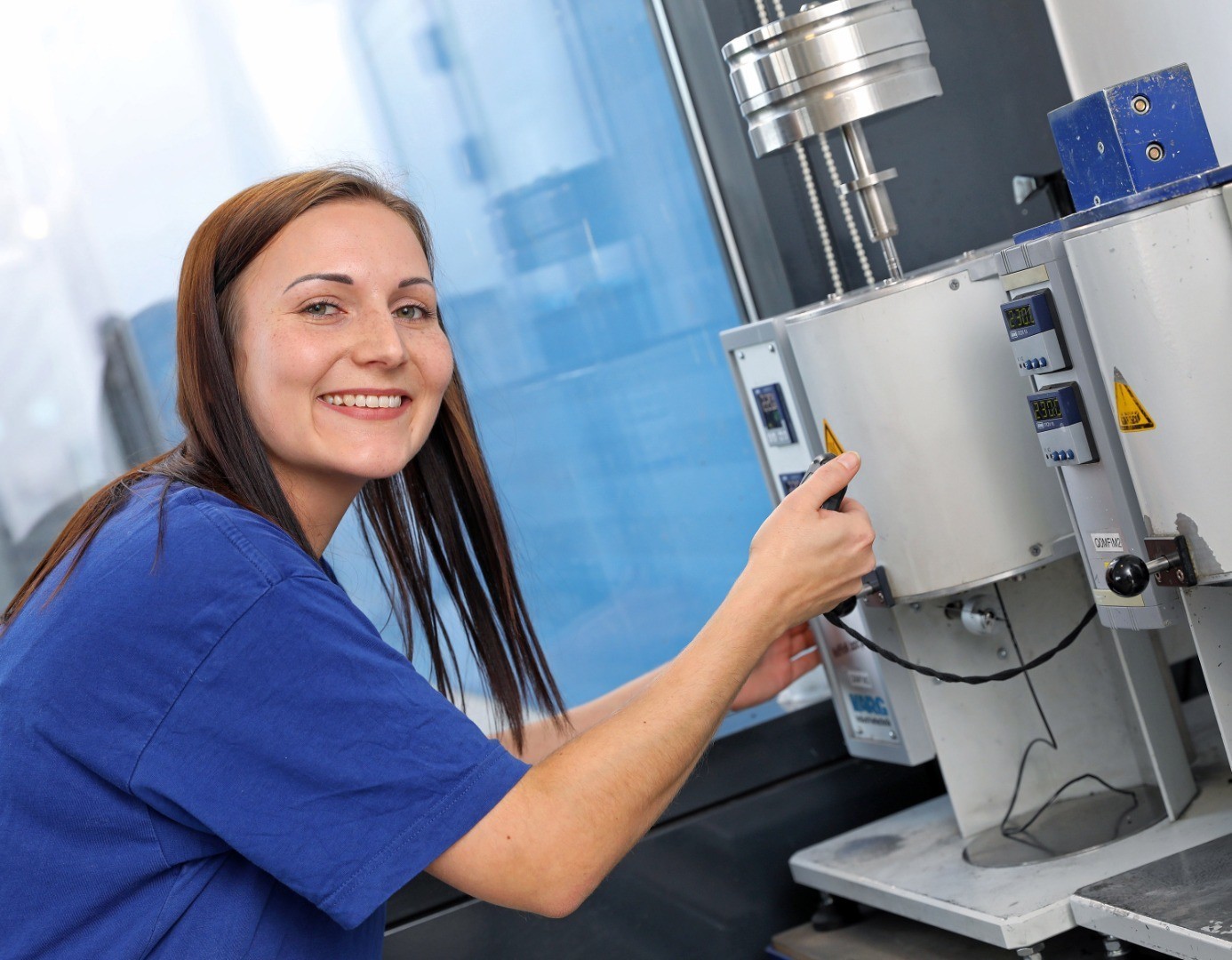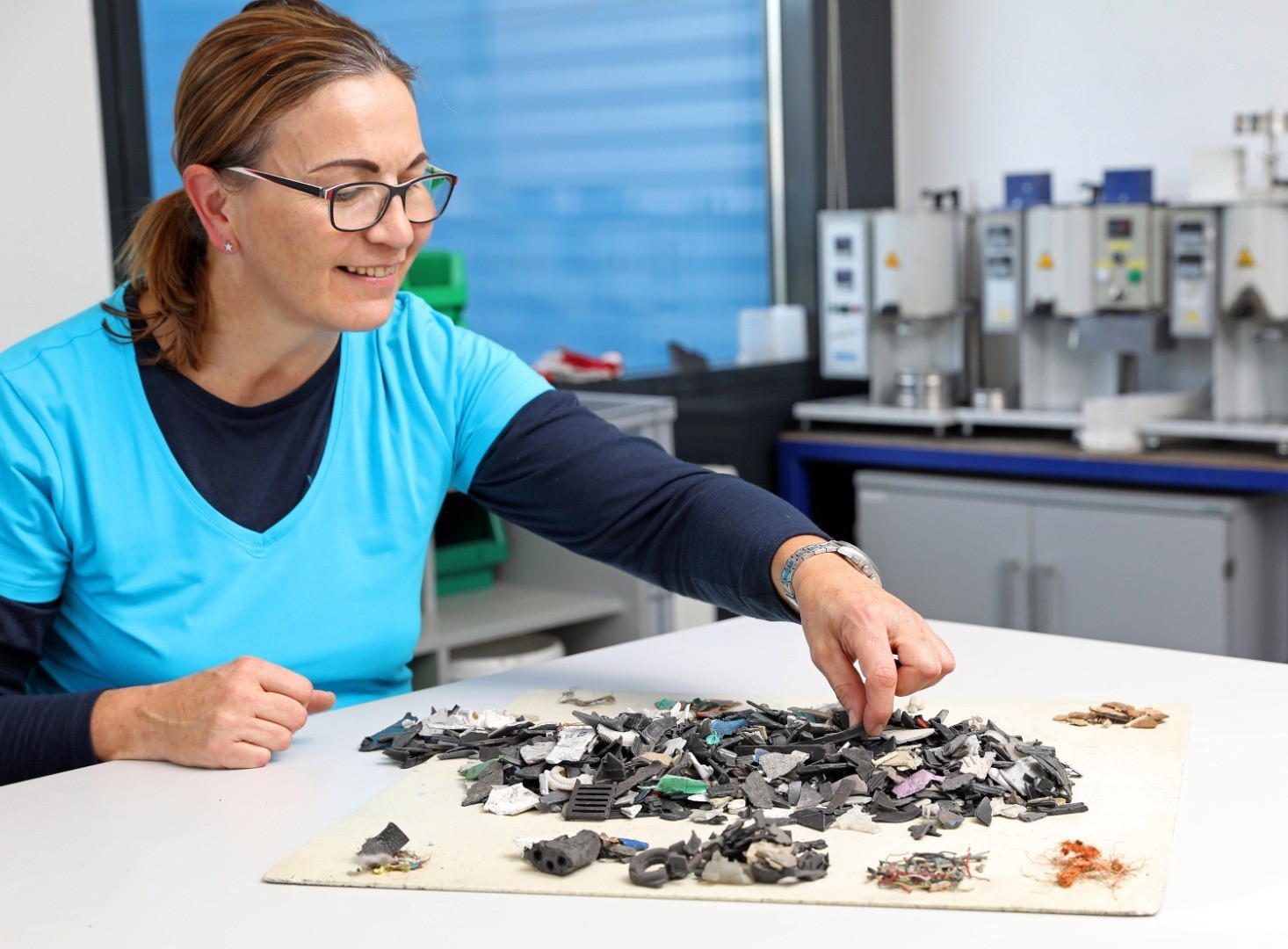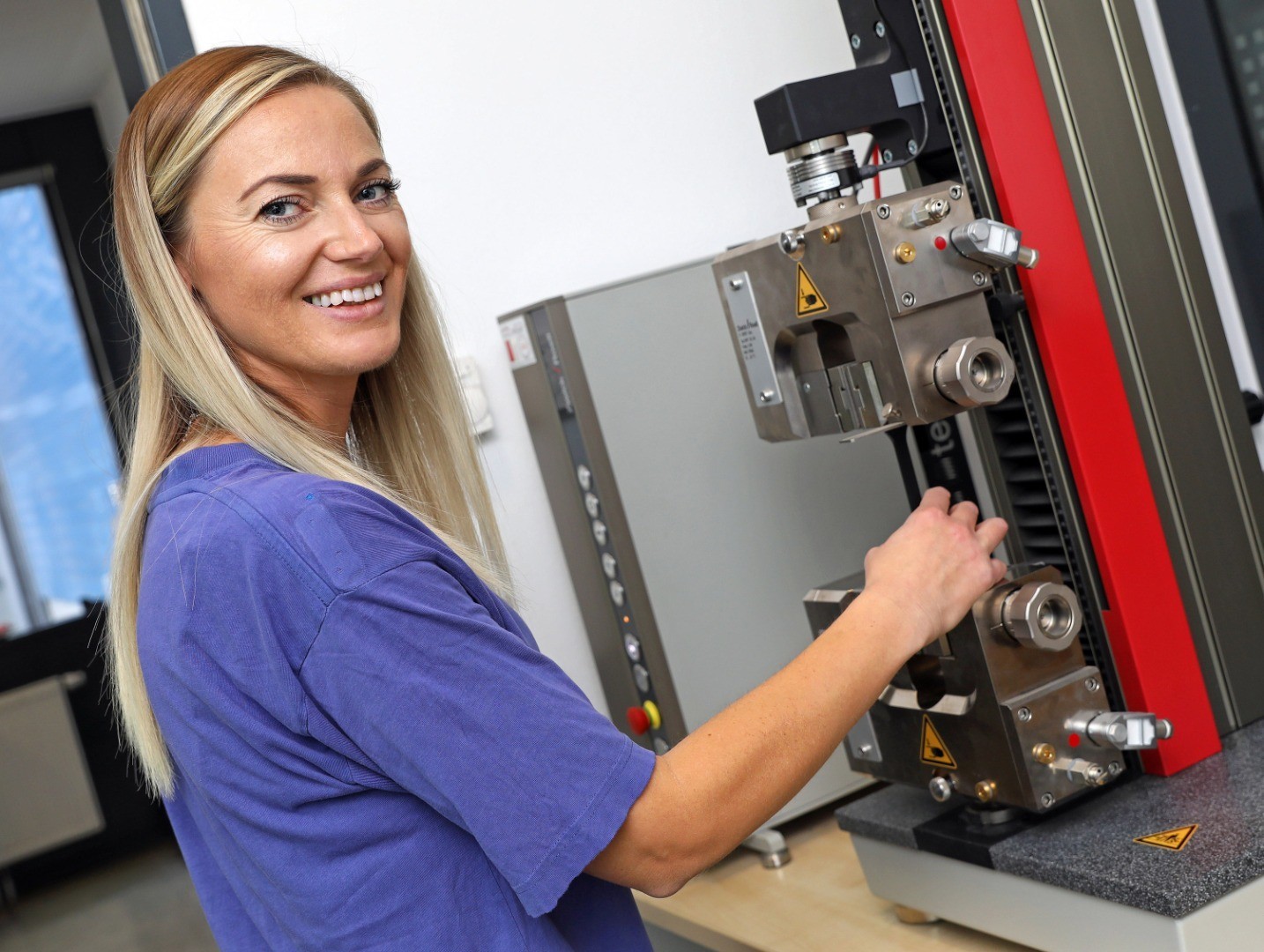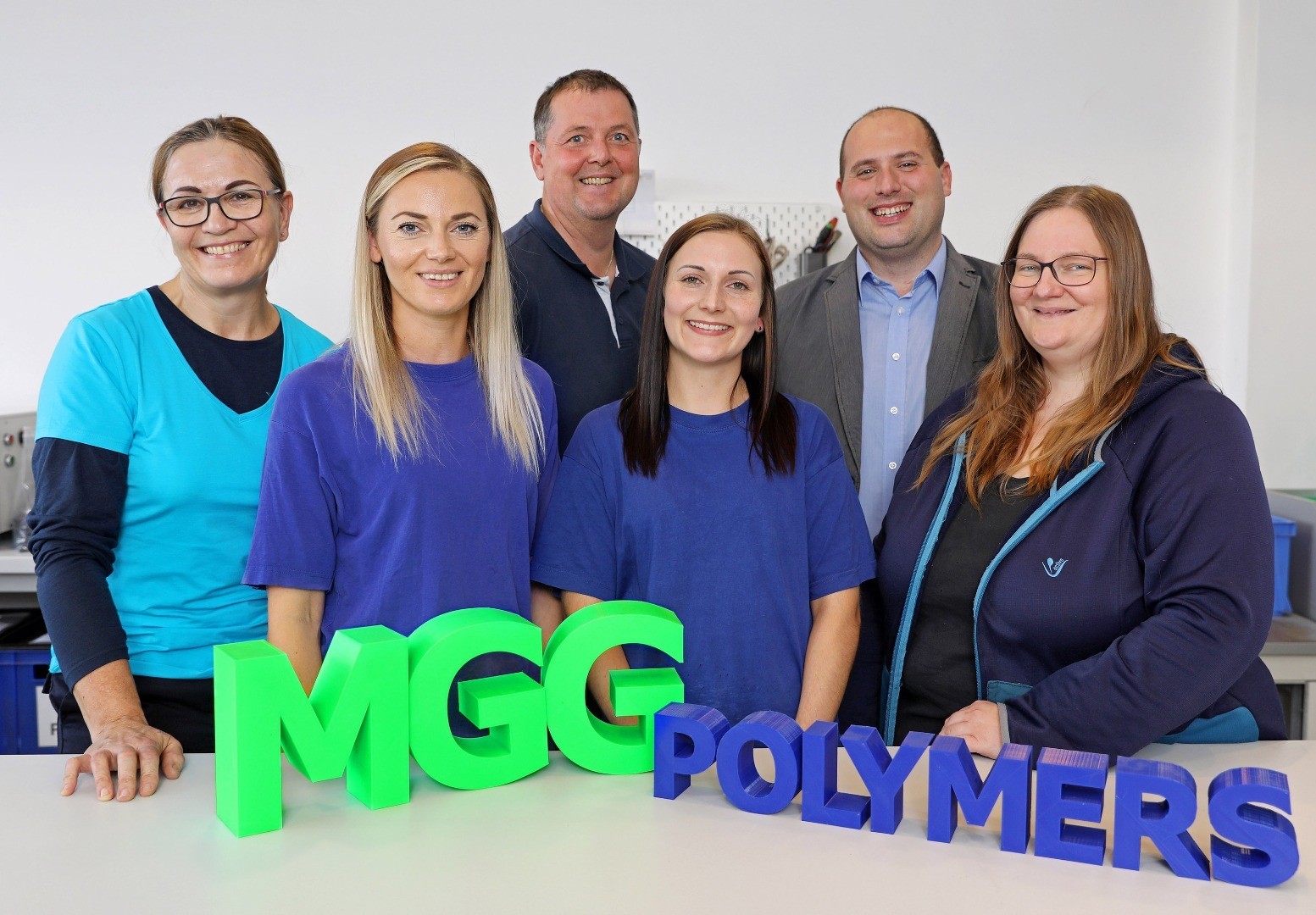Quality all around the clock

MGG Polymers laboratory is a very important place: Every day a lot of data generated from the inspection of incoming goods, process control and product checks build the basis to decide whether our Post Consumer Recycled (PCR) plastics can be delivered to the customers. A large part of the laboratory equipment was recently renewed, but the company is already planning further steps.
There is always something going on in the laboratory at MGG Polymers - 24 hours a day, all the year! This is the place, where it is ensured that the quality of the post-consumer recycled (PCR) plastics produced is really high. With continuous usage over more than a decade, the entire laboratory equipment is subjected to enormous stress. Therefore, it was decided to renew the furniture all around this summer and also to purchase important new testing instrument. "We recently acquired a new tensile testing machine. Tensile testing is one of a number of final tests which are performed, before the material can be shipped to our customers" explains Philipp Felber, head of quality and environmental management at MGG Polymers.
From beginning to end
From the very beginning on, the facility in Kematen had always paid great attention to quality control and quality assurance. From the incoming raw material (electronic scrap) to the outgoing finished PCR plastics, nothing is left to chance. The laboratory team constantly checks the material - and this for good reason, as Philipp Felber explains: "This way we can intervene immediately as soon as any process in our chain does not work as desired. If we notice at the end that a product does not meet our high-quality requirements, it is being blocked within our ERP system and therefore cannot be delivered automatically. In detail, not even a delivery note can be printed. So, the goods have to be checked again and sometimes they are even reprocessed until everything fits."


100 percent compliant with the law
During 5-shift operations, the materials are analysed all around the clock so that a stable product quality meeting all the legal requirements can be guaranteed. The individual analyses for the final products can be divided into three areas: rheological, mechanical and chemical tests. Chemical analyses are carried out by certified testing institutes. This ensures that all specifications regarding the European chemicals legislation (REACH) and the regulation of hazardous substances in electrical and electronic equipment (RoHS) are met.
"We invest a lot of money every year to ensure that we manufacture our products 100% in compliance with the law," Philipp Felber emphasises and explains the difficulty in plastic recycling: "For us as recyclers, we have to comply with both, waste legislation on the one hand, but also product legislation on the other hand. Therefore, it is important for our customers to receive a tested product that has really been manufactured according to all legal guidelines. We do guarantee this with providing various certificates, so that our customers can safely manufacture new devices from PCR plastics."
New projects
No surprise that MGG Polymers is already making further plans: Both, the laboratory itself and the team will be enlarged in the future. The equipment will also be continuously expanded. Even a premiere is to be made possible in the MGG Polymers laboratory, as Philipp Felber reveals: "We want to carry out ageing tests together with customers. This will be new in the field of PCR plastics, because currently such tests are only carried out in the production of new plastics from crude oil. In the field of plastics recycling, this would be another milestone."

Things to know about REACh and RoHS:
REACH stands for Registration, Evaluation, Authorisation and Restriction of Chemicals. It´s THE European legislation for any chemicals and is in force since 1 June 2007. One aim of REACH is to regulate the use of substances of very high concern (chemicals). This applies to the substance itself as well as to mixtures and articles in which it is used. REACH covers all (chemical) substances in consumer products. Manufacturers and importers into the EU are responsible for the safety of the chemicals which are put on the market. Depending on the hazardousness of the substance, corresponding data must be provided to the competent authority ECHA. Currently, 219 substances are listed as particularly hazardous in a separate list ("candidate list"). This list is updated twice a year if necessary.
RoHS stands for "Restriction of (the use of certain) Hazardous Substances in electrical and electronic Equipment". Put in place in 2002 as first version, the actual one (“RoHS 2”) came into force on 8 June 2011. The aim of the RoHS Directive is to reduce the burden on health and the environment caused by particularly hazardous substances and materials. The directive applies to all electrical and electronic equipment and regulates which particularly toxic substances (e.g. heavy metals, flame retardants and plasticisers) must be kept to an absolute minimum. Currently, the RoHS Directive lists the following hazardous substances: Lead, mercury, cadmium, hexavalent chromium, polybrominated biphenyls (PBB), polybrominated diphenyl ethers (PBDE), di(2-ethylhexyl) phthalate (DEHP), butylbenzyl phthalate (BBP), dibutyl phthalate (DBP) and diisobutyl phthalate (DIBP).
